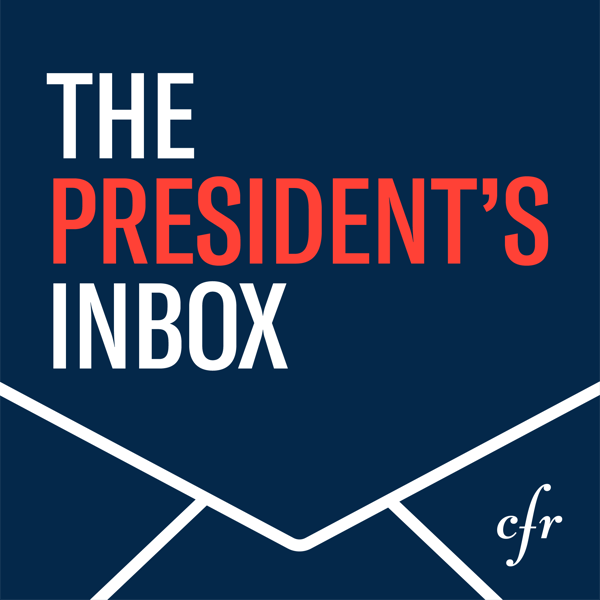A New U.S. Grand Strategy: The Case for Liberal Internationalism, With G. John Ikenberry
The President’s Inbox
Council on Foreign Relations
4.5 • 698 Ratings
🗓️ 7 May 2024
⏱️ 31 minutes
🧾️ Download transcript
Summary
Transcript
Click on a timestamp to play from that location
| 0:00.0 | Welcome to the President's Inbox, a CFR podcast about the foreign policy challenges facing the United States. |
| 0:10.2 | I'm Jim Lindsay, Director of Studies at the Council on Foreign Relations. |
| 0:14.5 | This week's topic is The Case for Liberal Internationalism. |
| 0:22.9 | With me to discuss whether liberal internationalism is fit for purpose in the 21st century is John |
| 0:29.7 | Eikenberry. John is the Abergee Milbank Professor of Politics and International Affairs |
| 0:35.1 | at Princeton University. He is also co-director of Princeton's |
| 0:39.3 | Center for International Security Studies. John is the author of eight books, the most recent of which |
| 0:45.6 | is a world's safer democracy, liberal internationalism, and the crises of global order. |
| 0:53.0 | This episode is the second in my ongoing series on U.S. Grand Strategy |
| 0:58.3 | for the 21st Century. John, thank you for joining me on the President's inbox. |
| 1:03.4 | Great to be here, Jim. Thank you. As I mentioned in the introduction, this is part of a series of |
| 1:08.8 | episodes I'm taping about American grand strategy. |
| 1:13.2 | And I wonder, how would you define the term grand strategy? |
| 1:16.8 | Well, the term really emerged during World War I in Great Britain when strategic thinkers |
| 1:22.7 | were beginning to assess the lessons of the Great War. People like Basil, Littleheart, and others, |
| 1:31.3 | sometimes they used the term higher strategy, but they were making the point that was increasingly |
| 1:37.7 | obvious in their day that in this modern era, great powers to navigate times of war and peace need to take advantage |
| 1:47.8 | of their full repertoire of instrumentalities of national power, economic, military, of course, |
| 1:54.0 | political, ideological, technological, organizational. And so the term allows us to look at those full, comprehensive assets that |
| 2:06.3 | states might have or at least can develop to shape their environment. Barry Pozen, one of my |
| 2:13.1 | favorite definitions of grand strategy, uses the phrase that it's a theory that a state has about how to cause security for itself. |
| 2:23.3 | How does it do things to make it more secure? |
... |
Please login to see the full transcript.
Disclaimer: The podcast and artwork embedded on this page are from Council on Foreign Relations, and are the property of its owner and not affiliated with or endorsed by Tapesearch.
Generated transcripts are the property of Council on Foreign Relations and are distributed freely under the Fair Use doctrine. Transcripts generated by Tapesearch are not guaranteed to be accurate.
Copyright © Tapesearch 2025.

